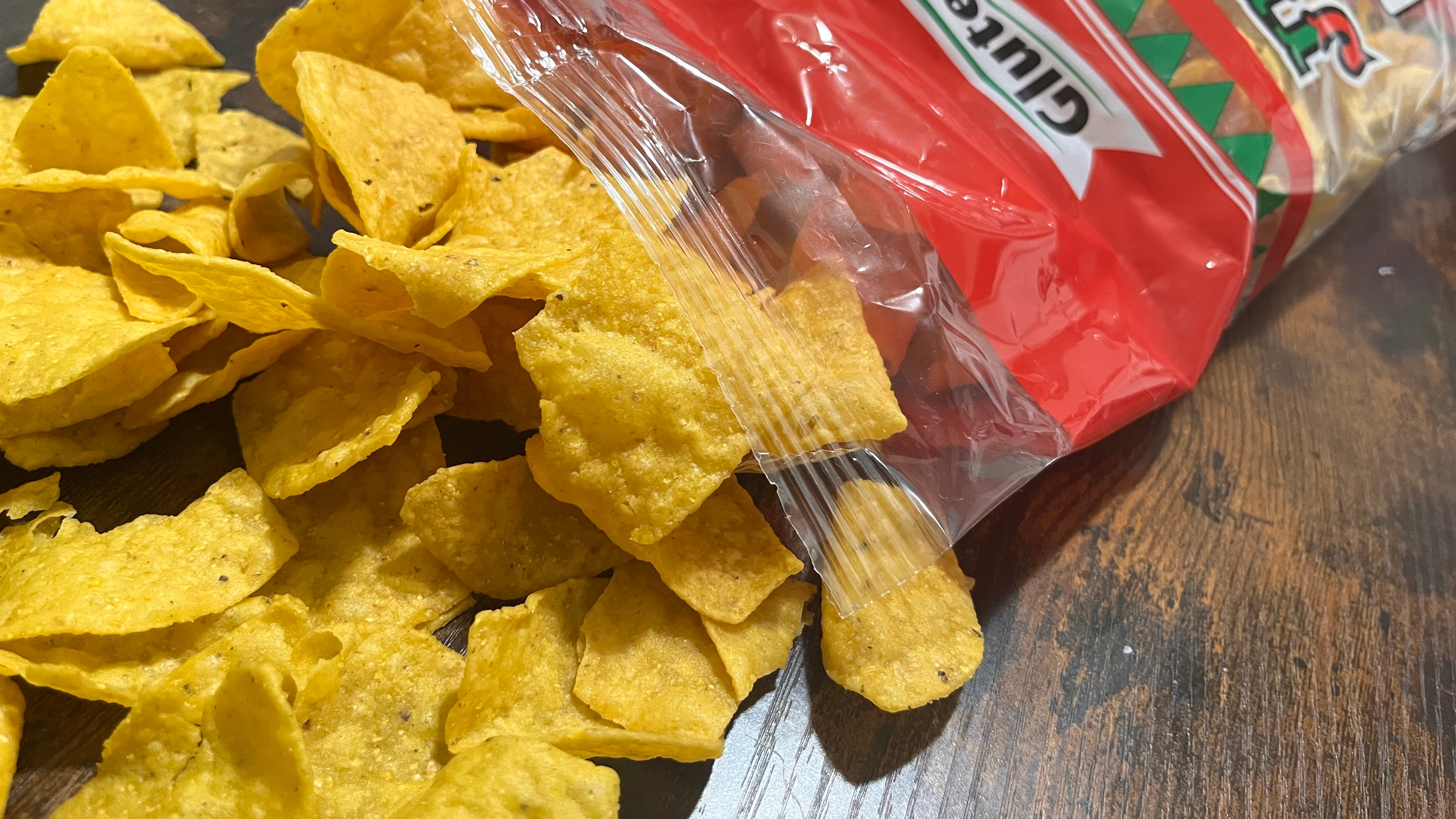On Dec. 8, tech founder and fast-food memorabilia collector Cabel Sasser tweeted about a shocking development in Pacific Northwest snacking.
Sasser noted the national availability of Hood River-based Juanita’s tortilla chips, with a caveat: “In the Pacific NW they’re still Juanita’s. Everywhere else they are now JUANTONIO’S!!?!”
Sasser included a screenshot from the Juanita’s website, where the explanatory text—”currently, our original Juanita’s bag can only be found in the Pacific Northwest stores. Outside of the PNW, our product will be named JUANTONIO’S BUT DON’T WORRY NOTHING HAS CHANGED!”—did little to explain why.
Writer Matt Maxwell tweeted a photo of a bag of Juantonio’s just a few days after Sasser’s tweets. Maxwell tells WW the picture was from a grocery store in Folsom, Calif., where the sudden change to his preferred chip was “weird and without warning.” Maxwell had been buying the chips in California—as Juanita’s—for years.
Sasser, one of the founders of Untitled Goose Game publisher Panic, followed up with the answer in a few days, via a post from The Trademark Lawyer: California-based Juanita’s Foods, a maker and distributor of canned Mexican food products, had filed suit in federal court this August against Juanita’s chips parent company Dominguez Family Foods, alleging it was violating the terms of an agreement to use “Juanita’s” only on products sold in the Pacific Northwest (defined as Alaska, Idaho, Montana, Nevada, Oregon, Washington and Wyoming).
“Plaintiff could have filed a trademark infringement lawsuit and shut down Dominguez” in the late 1980s, the lawsuit claims. “Instead, Plaintiff gave Dominguez the benefit of the doubt. It offered Dominguez an opportunity to continue using the Juanita’s mark, subject to very specific restrictions that were intended to avoid any consumer confusion between their brands.”
Alas, the chip-maker’s own website had in plain view an availability map that included Utah, Colorado, Arizona and California, which is included in the lawsuit.
The potential confusion caused by Juanita’s-branded chips on the shelves of Von’s is just one part of the dispute. “It gets worse. In October 2021, Dominguez filed an application with the U.S. Patent & Trademark Office to register a ‘JUANITA’s’ trademark,” reads the filing, which goes on in a heavily redacted passage presumably detailing how this violates a 1991 agreement between the Juanitas.
Both companies feature stories about their founders on their websites. Juanita’s Tortilla Factory, later Juanita’s Fine Foods, was started in Hood River in the 1970s by Juana Dominguez. Juanita’s Foods began as the Harbor Canning Company, specializing in packaging menudo and pozole, and was renamed in the 1980s. It’s not clear from the website if there was an actual Juanita in the California business.
Juanita’s Foods has held a number of federal trademarks using the Juanita’s name for decades, and the judge in the case issued an injunction in mid-October halting the sale of Juanita’s-branded chips outside of the Northwest.
The Wayback Machine shows a change in the Juanita’s chips website after the judge’s injunction. An archived copy of the site from September shows a webpage with the “Juanita’s” header, but in December it was changed to “Dominguez Family Enterprises” and that also appears to be when “Juantonio’s” showed up.
It’s a portmanteau that incorporates the name of Juana Dominguez’s husband, Antonio.
Luis Dominguez, the son of Juana and Antonio, and the current president of Dominguez Family Foods, says that’s what they decided to rename the chips when the October injunction was issued. “Juantonio’s was developed because my mom’s name was Juanita and my dad’s was Antonio,” he adds. “It’s the same chip, same everything, same people; we just had to rebrand to keep selling in California and Arizona.”
The company’s attorney, Jesse Lyon at Davis Wright Tremaine, says the change will also allow the chips to be sold nationally under the Juantonio’s name.
“The takeaway is, people love the chips,” Lyon tells WW. “The plaintiff in this case, they don’t sell chips, they’re not even in the chip aisle anywhere, so there’s not any competitive impact. We’re trying to take the high road and help this really awesome, Latino-owned heritage food company succeed.”
Long-beloved in Oregon and other Northwest states because of their restaurant quality, Juanita’s are a little crunchier, saltier, cornier and greasier than most mass-produced chips. Snackers have paid close attention to real and suspected changes to their marketing and manufacturing, and Juanita’s has been subject to investigative journalism in recent years.
In 2016, Fox 12 weather anchor Andy Carson’s comments about a change in chip width drew an on-air discussion with a company representative, Christy Weekly, who acknowledged that the chips had changed shape. Further investigations were carried out by OPB reporters but never aired, according to these tweets. The Portland sub-Reddit is full of threads about Juanita’s. People in the region care about these chips.
When contacted for comment, Cabel Sasser wanted to give credit to Twitter user @lemieuxster for initially tipping him off to the change, and to XOXO’s Andy Baio for being the person to discover the trademark story. But what’s really important here is to remember that these are really good chips, he wrote in an email.
“It is inarguable that Juanita’s are the best store-bought tortilla chips in existence and anyone who says otherwise is a liar, in the pocket of Big Chip, or on a low-sodium diet,” Sasser wrote. “Normally I’d be overprotective and say that they’re a special part of the northwest and stay away, but after everything the world has been through in the last few years, I think the rest of America deserves some Juanita’s—or Juantonio’s. And if nothing else, I’m proud that we once again lead the nation with the country’s first gender-fluid chips.”
